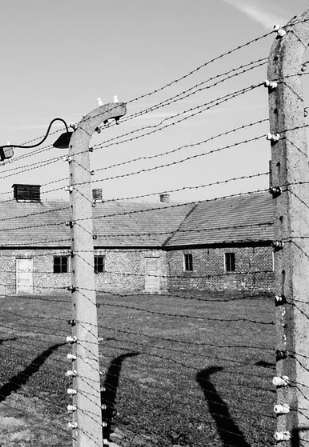Holocaust Ignorance: Today’s Dangers
There must be a new urgency to ensuring that people everywhere understand the horrors of the past and the dangers of today’s authoritarian trends.

Takeaways
- More than 40% of Americans do not know that Auschwitz was a Nazi concentration camp. Over one-fifth of US millennials have not or are not sure if they have heard of the Holocaust.
- Major efforts have long been made in many countries to promote awareness of the Holocaust. But they are not enough.
- Educational programs on the holocaust need to be complemented by a far greater focus on the arts. Many artists have found ways to highlight the issues and stimulate people to learn more about them.
- There must be a new urgency to ensuring that people everywhere understand the horrors of the past and the dangers of today’s authoritarian trends.
More than 40% of Americans do not know that Auschwitz was a Nazi concentration camp. Over one-fifth of U.S. millennials have not or are not sure if they have heard of the Holocaust.
Findings of widespread ignorance of the Holocaust emerge from a new poll taken by Schoen Consulting and commissioned by the New York based Conference on Jewish Material Claims Against Germany.
Almost half of U.S. adults (45%) and millennials (49%) cannot name one of the over 40,000 concentration camps and ghettos in Europe during the Holocaust.
The survey results coincide with the publication in the U.S. of former Secretary of State Madeleine Albright’s new book, “Fascism: A Warning.”
She writes: “The 20th century was defined by the clash between democracy and Fascism, a struggle that created uncertainty about the survival of human freedom and left millions dead.”
International ignorance
I do not believe that the widespread ignorance of the Holocaust, in particular, and the horrors under authoritarian regimes in the past more generally, is confined to Americans.
Major efforts have long been made in many countries to promote awareness of the Holocaust. The educational programs in many countries encouraged and assisted by The World Holocaust Remembrance Centre (Yad Vashem) in Jerusalem are enormously impressive. But their efforts, and those of Jewish museums and Holocaust educational centers in many countries, are not enough.
I believe that such efforts need to be complemented by a far greater focus on the arts, not only because this is a way to reach far greater audiences, but because many artists have found ways to highlight the issues and stimulate people to learn much more.
The power of art
For example, I was at the Boston Museum of Fine Arts recently and found a brilliant picture of shards and ornaments hurled together in a Cubist multi-color painting called “Disorder.”
It was painted in 1946 by Karl L. Zerbe, who was born in Germany in 1903 and died in Boston in 1972 where he had been a prominent art teacher for over 35 years, having fled Nazi Germany when his work was designated “degenerate art.”
Another example, if ever a picture could be said to say more than 1,000 words then it is Donald Sultan’s “Polish Landscape” that highlights railway tracks at Auschwitz, painted in 1990 and part of his series of “Disaster Paintings.”
Music’s impact
Just listening to some extraordinary music can have the same effect: Be it the urgent and powerful protests against war and dictatorship that are found in some of Dmitri Shostokovich’s compositions; and in listening to the magnificent concerto for harpsichord and orchestra that Viktor Kalabis wrote in 1975.
The extensive ignorance of the Holocaust must be countered. By all mainstream educational means and by use of the power of the arts there must be a new urgency to ensuring that people everywhere understand the horrors of the past and the dangers of today’s authoritarian trends.
I believe that the desire for such knowledge among younger people is strong, once they have been introduced to the topic.



























